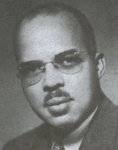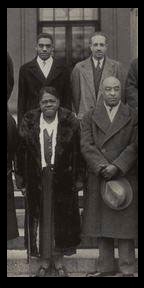IllmaticDelta
Veteran
@xoxodede
My views and comments about the mixed race free people and the enslaved Africans in the St. Domingue refugee population that entered Louisiana have been consistent.
From the size of both groups (as documented in census per and post arrival), to the parts of the territory and region the people settled into, to the gender composition of the free group, to their occupation/training, to their cultural impact to the region. All of these things been written about by scholars and historians from the region.
In fact, having read this history, one of my common comments in discussions about people from that region is to speculate about whether they descend from the St. Dominguans. When I do that, without fail, members come out of the woodwork & parachute out of the sky to remind/assure me that the SD impact (genetic) is overstated and that it was mostly AAs there.
When I mention documented examples of SD influence in that region, members come out of the woodwork and parachute down to remind/assure me that SD impact (cultural) is overstated and that it was mostly AAs there.
The topic of Gulf/Louisiana FPOC or Creole slaveowners has come up several times. I've spoken about the SD refugee WHITES, and FPOC who arrived in the country with enslaved Africans, and the ones who went on to own plantations here and purchase human beings.
With @ boy as the exception, at no time has anybody else come out of the woodwork or parachuted down to remind/assure us that the SD impact (FPOC slaveowners)was overstated, and that it was mostly AAs here.
.
I never saw the threads you're referring to but as someone who feels the SD influence is way overstated, I've never once attempted to place that the FPOC in New Orleans who owned slaves/servants were mainly from Haiti. I even posted this before about many FPOC in South Carolina doing the same thing
Last edited:













